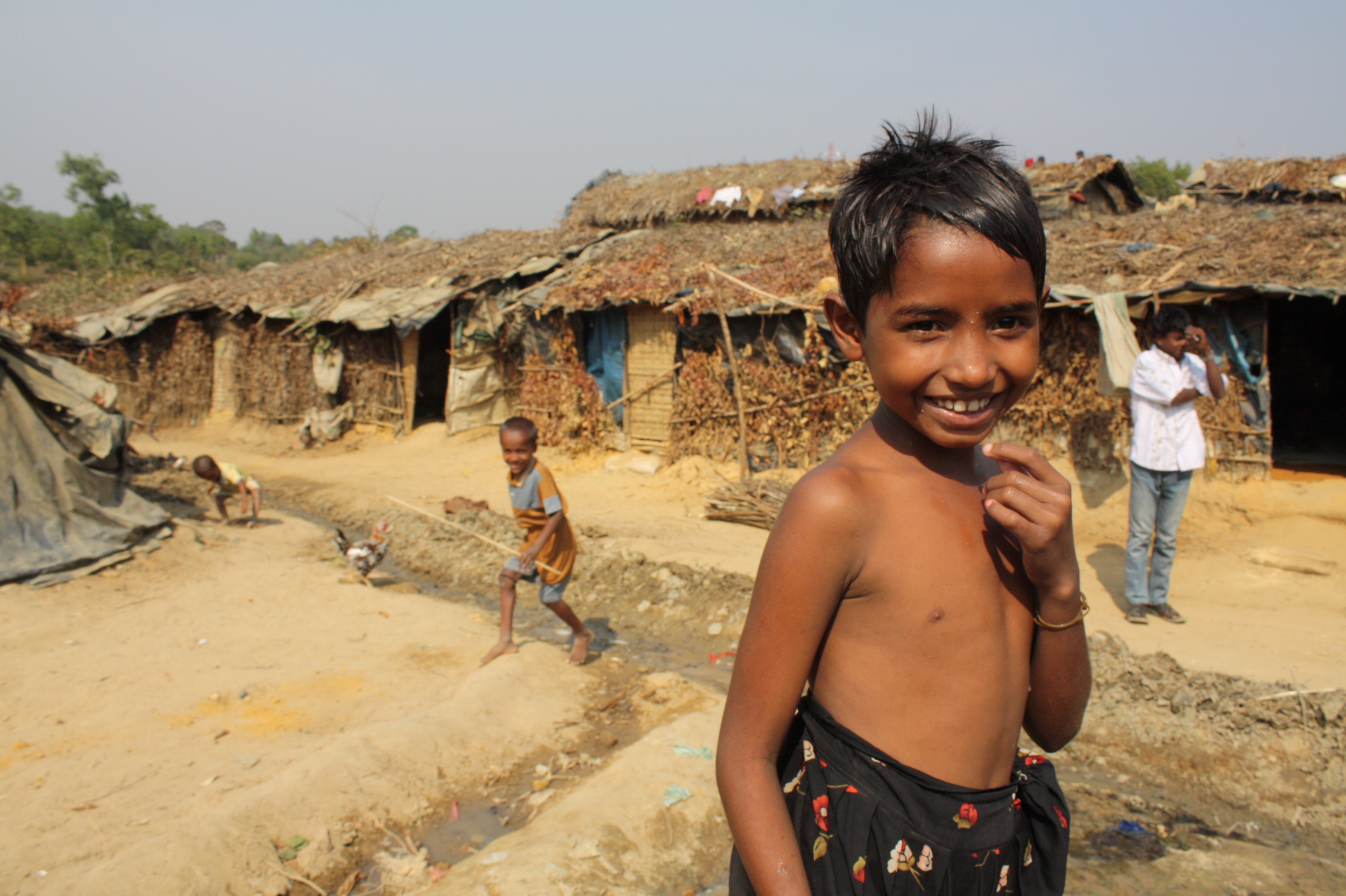See also: Myanmar’s refugees still on the run - special report
Close to 30,000 undocumented Rohingya are now at the site, which is adjacent to a government camp for 11,000 documented Rohingya refugees in Cox’s Bazar District.
“MSF is extremely concerned about the humanitarian situation in Kutupalong makeshift camp, where the number of unrecognized Rohingya refugees is growing at an alarming rate,” Paul Critchley, head of mission for Médecins Sans Frontières (MSF), told IRIN.
The Rohingya - an ethnic, linguistic and religious minority who fled en masse from neighbouring Myanmar decades ago - have long had a tenuous relationship with the Bangladeshi authorities.
Under Myanmar law, they are de jure stateless.
The Bangladeshi government views the Rohingya as illegal migrants, while local resentment over jobs and resources has intensified in recent months.
In an 18 February report, MSF calls for an immediate end to the violence, which has already forced thousands to flee the district and head to the makeshift camp.
Due to the crackdown, the number of unregistered Rohingya has swelled at the makeshift site by more than 6,000 since October, including 2,000 in January alone, according to MSF.
The Arakan Project, an advocacy organization for Rohingya, reported on 16 February that Bangladesh law enforcement agencies had been targeting unregistered Rohingya in Cox’s Bazar District since January.
A similar campaign in Bandarban District, which started in mid-July 2009, is ongoing, it said.
|
Photo: David Swanson/IRIN  |
| Jamil Ahmed, 32, outside the hut he cobbled together from plastic and twigs, says he was forced from his home in Cox's Bazar 20 days ago |
“A humanitarian crisis is looming,” Chris Lewa, the project’s director in Bangkok, said. “People need to wake up to what is happening and wake up now.”
According to the UN Refugee Agency (UNHCR), there are some 200,000 Rohingya living in Bangladesh, of whom only 28,000 are documented and in two government camps assisted by the agency.
Little assistance
There are only two international NGOs - MSF and Action contre la Faim - working at the makeshift camp.
In MSF’s first preliminary assessment in March 2009, 90 percent of the over 20,000 people at the time were deemed severely food insecure.
Malnutrition and mortality rates were past emergency thresholds, and people had little access to safe drinking water, sanitation or medical care, the NGO found.
But with the crackdown worsening and more Rohingya arriving, concern from aid workers is growing.
They receive no assistance other than nutritional, mental health, and water and sanitation services from ACF, and medical services from MSF - making food a major issue.
Residents previously went outside the makeshift camp to work, allowing them to buy or borrow food from other refugees, but under the current crackdown, that too is proving difficult.
|
Photo: David Swanson/IRIN  |
| A young Rohingya boy at the Kutupalong makeshift site. Water, sanitation and food are key concerns for the 28,400 undocumented refugees at the site |
Sharing food rations
As dusk falls on the site, many residents cross into the official camp - pot in hand - to beg from documented refugees, many of whom share their food rations with them.
“This is putting a strain on our resources here,” AFM Fazle Rabbi, the camp’s CIC (Camp-in-Charge), the government’s most senior official at the official Kutupalong refugee camp, told IRIN.
He said many of the camp’s water and sanitation facilities were situated along its periphery, attracting many undocumented residents.
UNHCR quandary
The situation is proving particularly difficult for UNHCR, which assists the documented refugees in the official camps, but is not permitted to work at the makeshift camp.
The government has not allowed the agency to register newly-arriving Rohingya since mid-1993.
In its report, MSF calls on UNHCR to take greater steps to protect the unregistered Rohingya seeking asylum, and not to allow its agreement with the government to undermine its role as an international protector.
But according to Kitty McKinsey, the agency’s spokeswoman in Bangkok, those concerns have been taken fully on board.
"We are obviously very concerned about the unregistered refugees in the makeshift camp and it pains us to see refugees living in such dire conditions,” she told IRIN.
“We are working together with the Bangladeshi government and very much hope we can together find a solution for their plight."
ds/ey/cb
This article was produced by IRIN News while it was part of the United Nations Office for the Coordination of Humanitarian Affairs. Please send queries on copyright or liability to the UN. For more information: https://shop.un.org/rights-permissions





